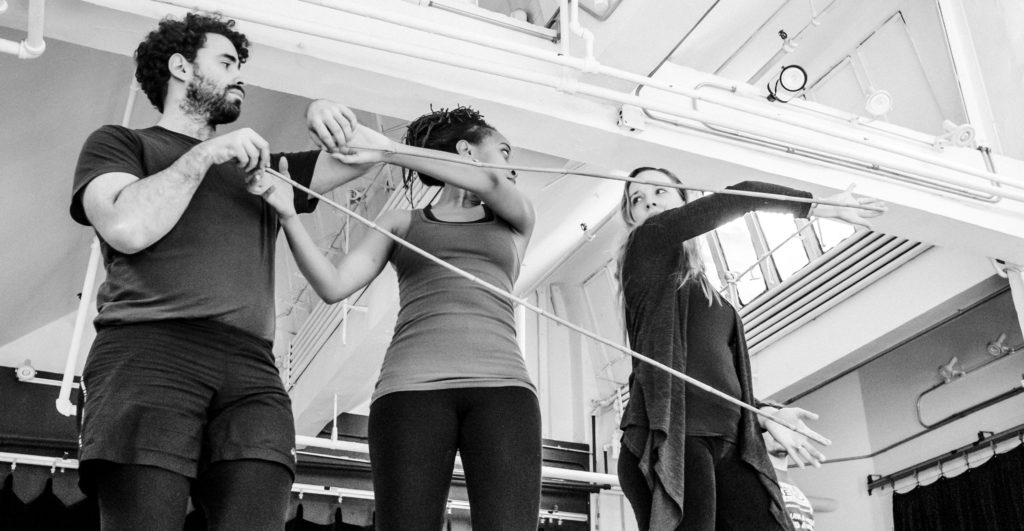Siobhan Keenan’s Acting Companies and their Plays in Shakespeare’s London is a must-read for theater makers, Shakespeare lovers, and leaders of collaborative teams. The world that fostered Shakespeare’s plays comes to vibrant life; the audiences, economics, and politics are just as important as the companies themselves.
In the theater of Shakespeare and his contemporaries, new play writing was a deeply collaborative process. Writers (often working in groups of two or more) wrote plays to sell to specific companies of actors, while also balancing the heavy influence of the Master of the Revels. The institutional and legal realities of the world made any “pure” version of a writer’s play impossible. Even plays that were approved for performance might require significant cuts or revisions. Then, because there was nothing akin to our modern conception of authorship, once a play was approved and added to a repertoire, the intellectual property legally belonged to the acting company, not the playwright.
“Most acting companies were effectively actor-collectives,” Keenan writes, comprised of three tiers of members: sharers (like Members in a modern day LLC), hired men, and boy apprentices. Playwrights “could not ignore the wishes or needs of the actors to whom they sold their plays.” The 6-12 sharers (who “shared the investment and…subsequently shared jointly in the company’s profit”) commissioned, purchased, and controlled the plays they performed.
Because of this influence, many of the most influential actors in the period left a heavy fingerprint on their roles. Playwrights had to incorporate those actors’ skills, preferences, and unique individual voices to stay in their favor. Some actors may even “have contributed to the writing and revisions of their roles.”
Some other favorite nuggets of insight:
- Theatrical impresario Philip Henslowe “deliberately chose to keep players and companies in his debt” in order to keep control of them financially and ensure that they played in playhouses he controlled: “Should these fellows come out of my debt, I should have no rule with them.” Sounds like a lovechild of modern university drama programs and every Improv theater ever.
- Though Shakespeare’s output of often 2 and sometimes 3 plays in a year seems ludicrous by modern standards, Rowland Broughton makes Billy look downright lazy: Broughton was hired to write 18 plays over only 2 and a half years in 1572. Since apparently Broughton was a human, he failed to deliver and a formal complaint was lodged against him by his employers. (Contracts requiring an output of 3 plays a year seems to have been more standard for playwrights.)
- The plays of the period were built on traditions of touring theatre. They had to thrive under extreme demands, similar to modern site-specific or environmental theatre: adapting to a wide variety of non-traditional venues, changing cultural and political climates, and rowdy audiences from all classes. Could those demands explain the enduring appeal of these plays to audiences and producers so many generations later?
- It became “customary for playwrights to receive the profits from one of the early performances of the play” — a tradition that this playwright at least would love to see return to fashion.
And these comprise only the tip of the iceberg Keenan has compiled. Economic, political, and day-to-day details give a crystal clear picture of the world to which these companies held up their mirrors.
Have you read Acting Companies and their Plays in Shakespeare’s London? What were your biggest takeaways? Continue the conversation with us in the comments below.


